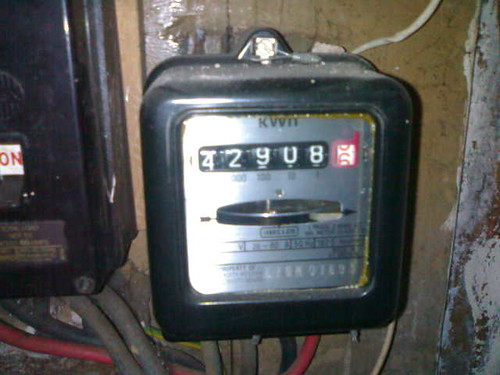National Student Money Week blog of the day – How to manage your bills…..cost, meters, dividing responsibility and saving money!
 For most of us managing the rent, mortgage and household bills is an unenjoyable necessity of life, but for many students this aspect of living independently for the first time can be a very stressful and daunting experience. In terms of utility providers, there is so much choice and it is very easy to switch your supplier, but before you think about the ‘who’, we’ve got some helpful hints on where to go for sound advice, and things to look out for. You also need to understand how it all works and what the options are for a group of friends, or strangers, living together.
For most of us managing the rent, mortgage and household bills is an unenjoyable necessity of life, but for many students this aspect of living independently for the first time can be a very stressful and daunting experience. In terms of utility providers, there is so much choice and it is very easy to switch your supplier, but before you think about the ‘who’, we’ve got some helpful hints on where to go for sound advice, and things to look out for. You also need to understand how it all works and what the options are for a group of friends, or strangers, living together.
First things first – How much do things actually cost? 
These are some example costs taken from the University of London – private housing guide.
For households of more than 3 sharing, divide the annual cost equally by those responsible for the bill
For most private rented properties, utility bills will be charged on top of the rent so before you commit to a particular place to rent, discuss the cost of house sharing with your proposed housemates – be honest and clear about how you will pay and how much. You may have very different expectations, and budgets, so getting the balance right at the start will help later on.
The market is saturated by different companies competing for your custom, so if you want to shop around for a cheaper deal, try Money Saving Expert Cheap Energy Club for a comparison of the cheaper tariffs and if you choose to switch through Money Saving Expert you may also get some cash back. There may be a clause within the tenancy agreement which prevents you from switching so you should actively seek agreement from your landlord before you act. However, according to Ofgem, your landlord can only dictate which company supplies the fuel to the property if the landlord themselves pays for the bill/s so do seek independent advice. You can also provide your landlord with a factsheet to give to landlords which may help your cause.
If your landlord still refuses to let you switch, contact Citizens Advice to see if this could be deemed to be an unreasonable term within the contract.
Some rented properties only have prepaid meters for gas and electric, which is most unfortunate as this method of paying is typically the most expensive. What’s the difference? The Debt Advisory Centre explains more. It also means that you can suddenly and unexpectedly find yourself with no power, which can be upsetting and confusing unless you know exactly what to do. Some meters may emit warning sounds and there should always be an emergency but very limited ‘back up’ system which should at least tide you over until the following day.
Do you know how to take a meter reading? Hopefully the meter in your home will be more modern that this one!
The provider N Power has a video showing you how to read all kinds of electricity meters. You can view it here
Understanding how to read a meter and submitting the correct reading to your supplier should in theory mean that you’re only paying for your household usage. Always keep a note of the date of the reading as well as the number as this will help you plan for the next bill period. If you are in a flat, there may be multiple meters in one communal area, so make sure you know which one is yours!
Most companies encourage you to submit the reading online or via an app which makes it even quicker.
Divide and unite
A key golden rule in living with other people is understand your responsibilities as a group. When it comes to the bills, make sure everybody’s name is listed for each bill. That way, in the unlikely event that someone doesn’t pay their share, one single bill holder won’t be lumbered with the whole debt. Utility providers can pursue people for years and this will have an impact on your credit rating. If you are all listed and all of you bar 1 or 2 have paid promptly and you can evidence your contribution, you may avoid being pursued for another tenant’s non payment.
There are ‘insurance’ incentives which you can opt into such as Only My Share. This comes at a price £79, but effectively it covers you in case one of the tenant leaves or defaults, any share due from you will be covered. It is quite an involved set up but worth knowing about if you don’t know the other people in the property.
Save the Student produce an excellent impartial comprehensive guide to student bills which includes articles written by students for students and feedback on apps like Splitwise (an app to help you split bills, as the name suggests) and Glide (an app which combines all the bills together, but you do invariably pay more for the privilege). Likewise Money Advice Service is a good place to find independent advice about bill sharing and what to do if things start to go wrong.
How to save money on the bills
You’ve got an idea about how much average bills cost (see table above) but it might be worth looking at which items cost the most (and least) as you might be surprised. Many of us would assume that the tumble dryer is the worst offender, but not necessarily. It may have stiff competition from an older fridge freezer which doesn’t have an A* rating as Carbon Footprint explains. With all of these major appliances it is how we use them which makes the biggest impact, so if you can’t be without a tumble dryer, Which tells us how to embrace a more cost effective relationship with one.
Southern Water has some sound viewing and reading literature which explains how to interpret a bill. The bill itself will be different depending on how your water supply is charged. Even more confused? This link should help. They also have some tips on how to save water around the home
If your supplier is British Gas, you can request a free Smart Meter which automatically take readings for you and are connected like magic to tell you all about your energy usage.
The Home Heating Guide is also a good general source of energy saving tips.
Chris Chesman, UoB graduate, produced an excellent House Hunting Good Practice Guide which has some excellent student focused hints and tips.
SAVING ENERGY ⇒ SAVING MONEY
The roadshow is recharging it’s advice giving batteries today, so why not give us a ring or pop in to our drop in instead? We’ll be back in action tomorrow at Sprinters café, Eastbourne campus between 12 – 2.
See you there!
Student Advice Service

